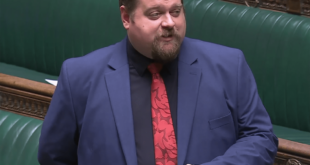Below are the key morning and weekend press headlines, featuring the The Times, The Telegraph, The Daily Mail & more – see the full Press section here.
Shareholders will this week see the impact of five months of political protest in Hong Kong on and its fellow London-listed international bank, , when they report third-quarter figures. The pair are highly vulnerable to the turmoil as each derives a high proportion of their profits from Hong Kong. It may be too soon for the full effect of the protests to have made themselves felt on the bottom line but, if they continue, serious damage seems inevitable. The turmoil has led to businesses closing and has hurt retail sales. There has been a drop in visitors from mainland China and elsewhere. HSBC and Standard Chartered are putting in place support for small and medium businesses to help them get through the protests, alongside the government. They have also been carrying out ‘stress-testing’ on some clients to assess their resilience. To make matters worse, the protests are taking place against a troubled global economic backdrop. China is locked in a corrosive trade war with the US and the world is facing what the International Monetary Fund calls a ‘synchronised slowdown’.
The founding family of may demand that a judge reviews the £4 billion takeover of the British defence firm if it is waved through by the Competition and Markets Authority (CMA) tomorrow. Lady Cobham has been a vociferous opponent of the sale to US private equity firm Advent International.The family, which has a 1.5% stake, had pushed the Government to refer the deal to the CMA after raising concerns that it posed ‘grave risks’ to national security and understated Cobham’s importance to the UK defence industry. They said they would consider a judicial review if the CMA backs the deal when it publishes its findings.
Amazon is recruiting a small army of delivery drivers in a direct challenge to . The internet shopping giant is urging entrepreneurs across the UK to set up businesses for as little as £10,000 as part of a major scheme to bring more of its operations in-house. And as ‘delivery service partners’, Amazon will guarantee them work from its vast network. Amazon’s logistics arm handles around 260m packages a year, but uses Royal Mail and its rivals to complete the final part of the journey to a customer’s front door. Royal Mail is already under enormous pressure from low-cost rivals and years of rows with unions over pay and conditions. The listed company has seen £4.2 billion wiped off its value in the past 18 months – or two-thirds – as its share price plunged. As part of Amazon’s scheme, drivers wear branded uniforms and their vans are emblazoned with the company’s logos, but the businesses are owned by the entrepreneurs, with Amazon contracting them to carry out deliveries.
is preparing to announce a profits slump after a slide at its clothing business, according to analysts. Tony Shiret at stockbroker Whitman Howard has forecast that profit before exceptional costs fell to £185million in the six months to the end of September, from £224million the year before. He said sales at its general merchandise division, which mainly sells clothing, may have fallen by as much as 4%, offsetting improved food sales, based on like-for-like figures. Analysts also expect the half-yearly figures, due to be published on November 6, to be further affected by exceptional costs. These include falling property values for its estate.
has been left more than £2m out of pocket after the collapse of Orla Kiely, the fashion brand favoured by the Duchess of Cambridge and model Alexa Chung. “It is not anticipated that the secured creditors [Metro] will be paid in full,” administrators from Quantuma have said. They added that having spoken to other creditors, Orla Kiely’s administration has now been extended and is expected to end in September 2020. It collapsed in September last year. Some cash is trickling in as royalties from one of its subsidiaries, Killoyn Stem, which is responsible for the brand’s licence agreements with factories, according to a Companies House report.
Retail investors may be separated from institutional funds to protect individuals better in the wake of the collapse of Neil Woodford’s business, the head of the City regulator has said. The disintegration of the Woodford Equity Income Fund poses questions about whether large and small investors should be mixed, Andrew Bailey said in an interview with The Times. In June Mr Woodford stopped investors from withdrawing money from his formerly hugely popular £3.7 billion fund after Kent county council tried to take out its £263 million of pension investments. Kent was the last in a string of large investors to request redemptions from the fund, which at its peak was worth £10.2 billion. Kent’s request was “the very proximate cause” of the freezing of the fund, Mr Bailey said. “That’s why I raise the question of mixing retail and non-retail. That was a relatively big part of the residual fund. Even if technically you could have liquidated holdings to meet that order, you are not satisfying the collective investment test,” Mr Bailey, 60, chief executive of the Financial Conduct Authority, said.
The number of junior companies listed in London has almost halved over the past 12 years, leading to speculation that the death of the Alternative Investment Market might be around the corner. Aim was set up in 1995 as a venue for smaller companies to raise capital to fund expansion plans. When it began, it was home to only ten companies, before spiralling to a peak of 1,694 in 2007. There was a small rise in 2014, but the numbers have dropped in every year since then. At the end of September there were 882 companies listed on Aim, a fall of 41 this year. Shore Capital, the stockbroker and corporate adviser, whose business relies on selling the idea of an Aim listing to its clients, is set to drop out soon. Not only are there fewer companies on London’s junior market, but there are fewer initial public offerings, too, while the amount of money being raised has also dipped considerably since its pre-crisis glory days.
will unveil its weakest quarterly results for four years this week, with a fresh hit of up to £1.8bn expected from the PPI scandal. The avalanche of mis-selling claims ahead of the August 29 compensation deadline may even be enough to tip the bank into its first quarterly loss since 2015, one City expert suggested. The consensus view among analysts is that Lloyds will turn a modest profit of £163m for the third quarter. The bank said it could be “misleading and unfair” to highlight one analyst’s work. Thursday’s results are set to be the weakest since the final three months of 2015, when the 254-year-old institution racked up a £507m loss. Ian Gordon, an analyst at Investec, said that until now he had been “bullish” on Lloyds and that it had “outperformed” Britain’s other banks so far this year. However, he has downgraded the shares from “buy” to “hold” and expects Lloyds to report a pre-tax loss of £24m for the three months to the end of September, compared with a £1.8bn profit this time last year.
made a rare venture-capital investment in Palantir, the CIA-funded data analytics group co-founded by billionaire Peter Thiel, The Sunday Times can reveal. The oil giant bought shares in the private company in 2014, not long after it began working with the California-based venture on digitising its operations, marking an unlikely marriage of Big Oil and Big Data. Palantir is arguably the most controversial company in Silicon Valley — after Facebook — for its work with America’s immigration authorities, as well as its contracts with the Pentagon and the CIA. The company’s software brings together mountains of data and provides intelligence to government agencies and corporations. Alex Karp, 52, Palantir’s chief executive, admitted this year that the company was “highly controversial and unpopular” in liberal Silicon Valley. Palantir renewed its contract with America’s immigration authorities this year. Its software is used to track migrants at the border. BP and Palantir kept the partnership under wraps until recently.
Naspers, the South African interloper hoping to gatecrash the merger of and a Dutch rival has said its bid for the delivery company is a “full and fair price”, despite demands from investors for a higher offer. Bob van Dijk, chief executive of technology conglomerate Naspers, said the 710p-a-share offer by its Dutch division Prosus, which values Just Eat at £4.9bn, reflected the “investment that is needed” in the group. Prosus has sought to muscle in. Just Eat said last week that it had rebuffed previous offers of 670p and 700p a share before its unwanted suitor unveiled the hostile £4.9bn offer. “We believe a cash offer at a 20% premium is better than an all-share offer,” van Dijk said. “It provides certainty to shareholders and shields them from operational execution risk.” Despite his confidence, shareholders in Just Eat have called for a higher offer. Aberdeen Standard Investments, which has a 5.4% stake, insisted last week that neither Prosus’s bid nor the merger with Takeaway was acceptable.


